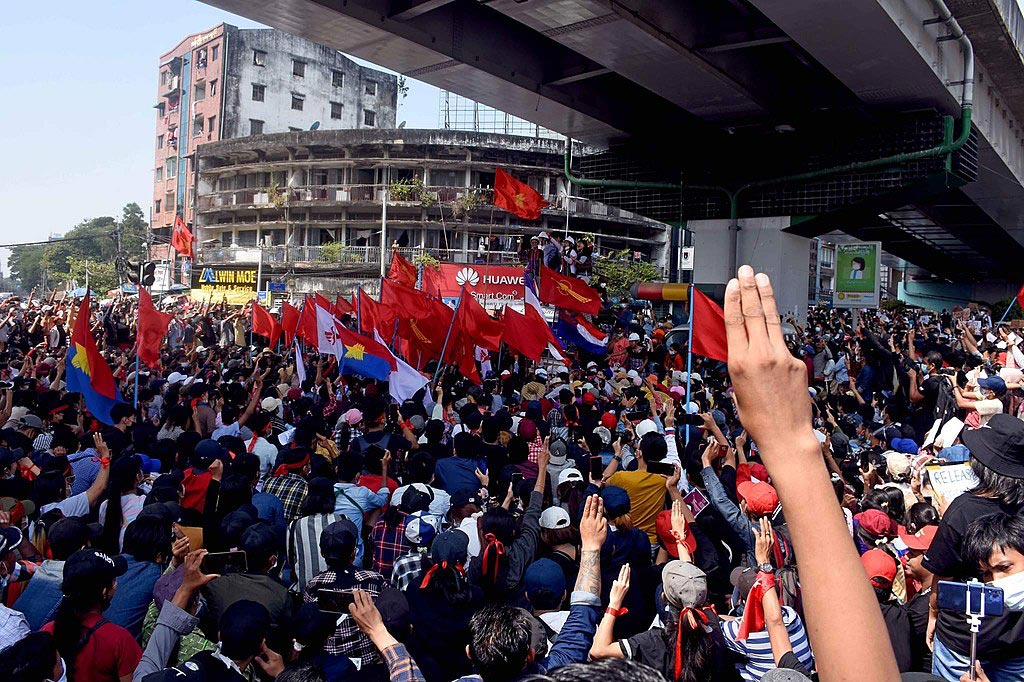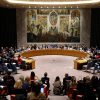
There was a time, the second industrial revolution being already well under way, when the first targets to be captured by anyone plotting a coup against legitimate governments were the main telephone exchange and the odd radio transmitter. Later it became television. The coup d’état being perpetrated by the army in Myanmar since 1 February has not only periodically cut off the Internet and mobile phone connections (as had previously happened in Egypt in the Sisi coup of 2013) but has made use of more advanced –imported– technologies in pursuit of its opponents. The shutdown of the Internet and mobiles in the midst of a coup, a pandemic and a humanitarian crisis has been described by an Amnesty International representative as ‘atrocious and irresponsible’.
It is not a new phenomenon. The Shutdown Tracker Optimization Project (STOP), run by the Access Now NGO, recorded 155 politically-motivated Internet shutdowns in 29 countries in 2020, with India leading the way. Although this was fewer than in 2019 (33 countries), some of them were the lengthiest in duration. 100 million people in Ethiopia were cut off from the Internet for two consecutive weeks during the COVID-19 pandemic. At the beginning of January this year, Internet services in Uganda were shut down in order to favour the election chances of the incumbent, Yoweri Museveni, who has presided over the country since 1986, and who won. The decision of the Human Rights Council and the General Assembly of the UN to classify access to the Internet as a fundamental human right in 2016 seems to have counted for little.
Access to the Internet and mobile connectivity tend to be expensive in developing countries. Myanmar set something of an example when it reduced the cost of SIM cards from US$150 in 2013 to US$1.50 in 2015, thereby expanding the market by millions of users. With a national population of 54 million, 24 million people in Myanmar rely on the state Post and Telecommunications company, 22 million use the Norwegian-owned Telenor and 10 million use another foreign company.
Internet access and mobile connectivity are not simply instruments of social relations but also essential for economic life, and this too has been interrupted by demonstrations against the coup. Hence it is not possible to cut the entire network, since it is essential for the country as a whole to operate. During the early hours of the day the Internet and mobile phones continued working, but the perpetrators of the coup in Myanmar, raiding the operators at gunpoint, soon disrupted these communications and they started to be cut between 1 and 9 am, sometimes for longer. The first shutdowns affected mobiles and mobile data in particular, although some people were able to continue getting an Internet connection at home. The armed forces presented the operators the draft of a new cybersecurity law with draconian measures. Telenor at first published the instructions it received from the army but was soon obliged to cease.
A more radical shutdown, ‘for reasons of security’ according to the new authorities, was applied three days later to Facebook. In Myanmar, as one user put it, ‘Facebook is the Internet’. The social media platform, used by more than 22 million people in the country, serves as means of obtaining news and chatting with friends and acquaintances, as well as enabling trade unionists to communicate with each other and coordinate political demonstrations. WhatsApp was also blocked. The shutdown of the Internet became a news blackout. Few people in Myanmar have access to VPNs (Virtual Private Networks), which can get round shutdowns by not relying on national operators.
The digital clampdown has gone much further than cutting connectivity. Surveillance systems using Israeli drones, European (including Swedish) devices for decrypting iPhones and other mobiles and US software for hacking computers and gaining access to their contents have all made their appearance in this coup, in addition to Chinese and Russian surveillance technology. In fact, the army had already used this technology when it repressed and expelled the Rohingya Muslim minority in 2018, and it learned from the experience. In the wake of the Rohingya crisis, many governments and manufacturers of these devices banned their export to Myanmar, including spare parts. But there they remain and they are being used to pinpoint the location of critics, whether members of the opposition, journalists or others, using social media, mobiles and the Internet in order to detain them. The companies defend themselves and blame intermediaries for the fact that these devices have reached Myanmar and have become essential tools for a coup d’état in the digital age.
The New York Times has conducted a laudable investigation into the subject and discovered in the public accounts for the last two years, furnished by the Justice for Myanmar NGO, ‘a voracious appetite for the latest in military-grade surveillance technology’ on the part of the armed forces, which run a business empire within the country’s economy. They had already equipped themselves with the most sophisticated public monitoring technologies. All this took place during the limited and tightly-controlled phase of democracy that began in 2016. The Tatmadaw (as the armed forces are known) had already been running disinformation and censorship campaigns for some time and, as mentioned above, rehearsed their digital coup and the communication blackouts in the repression of the Rohingya. It is undoubtedly something that will be studied by much larger states. Indeed, shortly after the coup, the government of neighbouring Cambodia, under Chinese influence, also tested its control over the Internet.
There has been a certain degree of fallout from the situation. Platforms and social media sites such as the Google-owned YouTube have reacted by deleting five channels run by the Myanmar armed forces for propaganda and disinformation purposes. And despite the deaths and arrests, there are daily mass protests attracting the participation of students, women, monks and even some police officers. Many young Burmese are risking their lives for the future, as the BBC (an essential broadcaster and website in these situations) has vividly reported. They are reasonably well coordinated. People bang pots and pans in protest, at least in the capital, almost every night. Perhaps this is the revenge of analogue collective intelligence over the digital. ‘Be water’ a Bruce Lee character used to say, a slogan and tactic that was adopted by pro-democracy protestors in Hong Kong. Although it did not stop them from losing.


